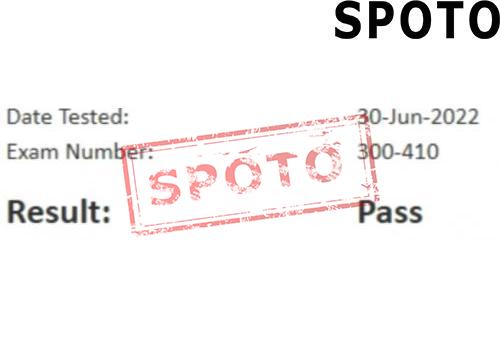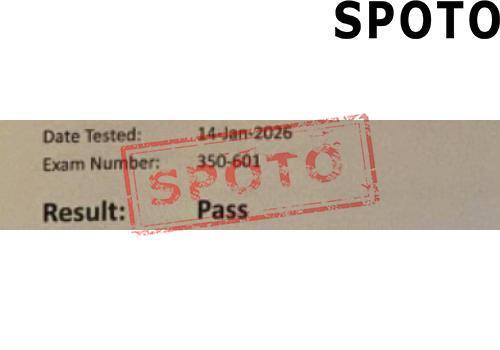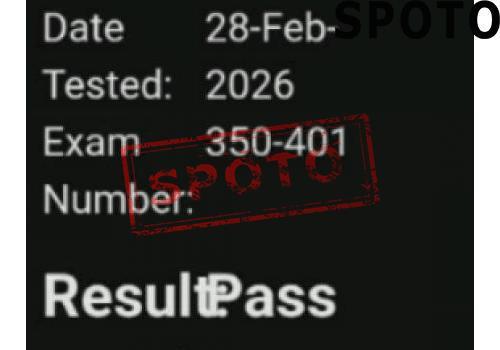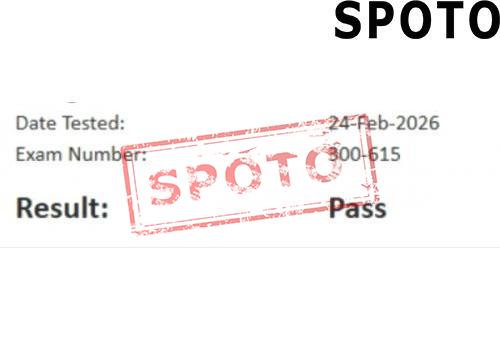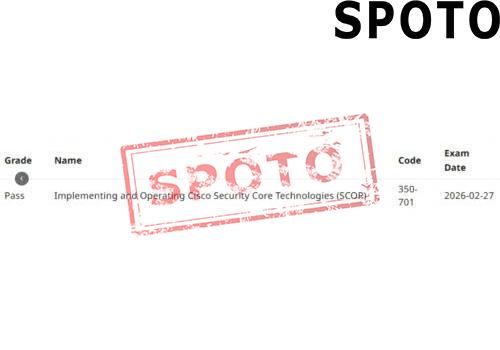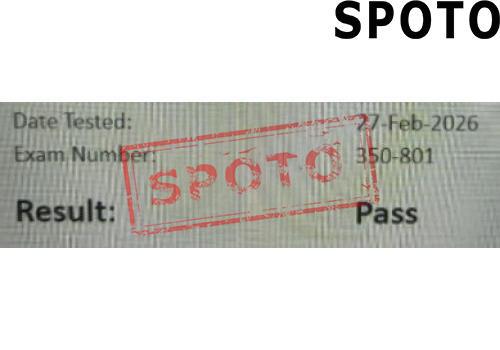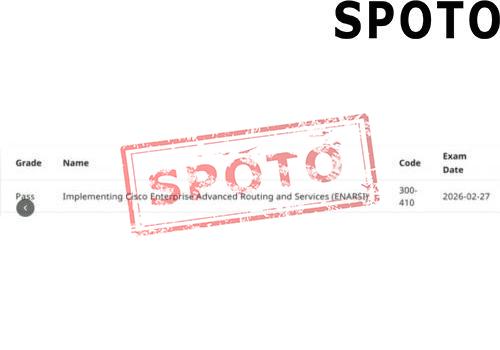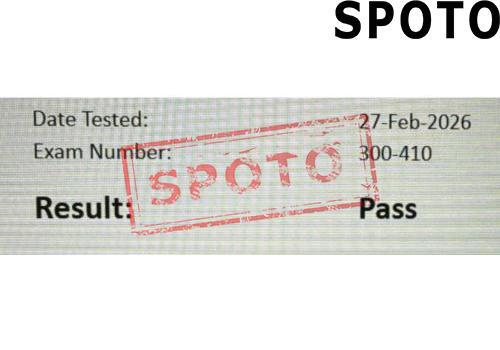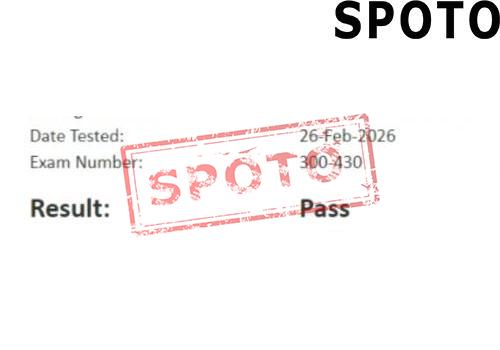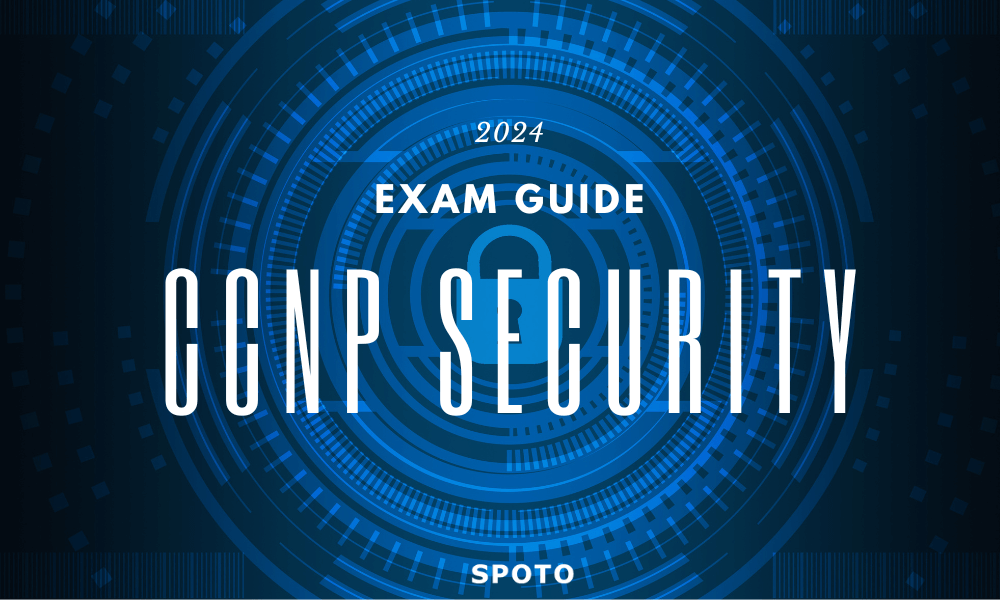
Table of Contents
In today's increasingly prevalent cyberattacks, the CCNP Security (Cisco Certified Network Professional Security) certification is an important way for cybersecurity professionals to showcase their expertise. This certification not only demonstrates an individual's ability to design and maintain advanced cybersecurity solutions, but is also key to career advancement.
Although some agencies claim that novices can get their CCNP Security certification in a fraction of the time, this propaganda often ignores the need for in-depth learning and practice. Preparing for this certification is a complex process that requires ample time and effort. This article will provide newbies with a realistic assessment of the time it takes to prepare for the CCNP Security certification, helping them to develop a reasonable study plan and avoid unrealistic expectations.
CCNP Security Overview
How to Earn CCNP Security Certification?
To earn the CCNP Security certification, candidates must pass one core exam and one concentration exam:
Core Exam
350-701 SCOR: Implementing and Operating Cisco Security Core Technologies
This exam tests the candidate's knowledge in implementing and operating core security technologies, including network security, cloud security, content security, endpoint protection and detection, secure network access, visibility, and enforcement.
Concentration Exam
Candidates must choose at least one of the following concentration exams:
300-710 SNCF: Securing Networks with Cisco Firepower Next-Generation Firewalls
- This exam tests the candidate's knowledge of Cisco Firepower firewalls and the Cisco Firepower Management Console, including policy configuration, integration, deployment, management, and troubleshooting.
300-715 SISE: Implementing and Configuring Cisco Identity Services Engine
- This exam tests the candidate's understanding of the Cisco Identity Services Engine, including architecture and deployment, policy enforcement, web authentication and guest services, probes, BYOD, endpoint compliance, and network access device management.
300-720 SESA: Securing Email with Cisco Email Security Appliances
- This exam tests the candidate's knowledge of Cisco secure email gateways, including management, spam control and anti-spam, email filters, data loss prevention, LDAP, email authentication and encryption, and system isolation and delivery methods.
300-725 SWSA: Securing Web Traffic with Cisco Web Security Appliances
- This exam tests the candidate's knowledge of Cisco Web Security Appliances, including proxy services, authentication, decryption policies, differentiated traffic access policies, identification policies, acceptable use control settings, malware defense, and data security and data loss prevention.
300-730 SVPN: Implementing Secure Solutions with Virtual Private Networks
- This exam tests the candidate's knowledge of implementing security solutions with Virtual Private Networks.
300-735 SAUTO: Cisco Security Solutions Automation and Orchestration
- This exam tests the candidate's knowledge of automating and programming Cisco Security Solutions.
Value of CCNP Security Certification
The CCNP Security certification offers multifaceted value. It enhances technical skills, elevates competitiveness in the job market, and paves the way for career advancement.
- Career Advancement: The CCNP Security certification is a significant milestone in a cybersecurity professional's career development. It not only enhances technical skills but also strengthens competitiveness in the job market, paving the way for higher-level positions and better career opportunities.
- Recognition of Skills: As a widely recognized certification in the industry, CCNP Security demonstrates that holders possess advanced cybersecurity knowledge and hands-on skills to protect corporate assets in the ever-changing cyber threat landscape.
- Technical Leadership: CCNP Security-certified professionals are often viewed as technical leaders who can play a key role in their teams, mentoring and training other team members and driving the implementation of security best practices.
- Higher Salaries: According to market research, professionals with CCNP Security certifications tend to command higher salaries than non-certified professionals, reflecting their expertise and market value.
- Continuous Learning: The process of preparing for the CCNP Security certification encourages continuous learning and professional growth. Certification requirements are kept current, which encourages professionals to continually update their knowledge and skills to keep up with the rapidly evolving field of cybersecurity.
- Global Networking: CCNP Security certification holders become part of the Cisco Professional Certification Community, with access to specialized resources, networking opportunities, and industry contacts that are essential for career development and professional networking.
CCNP Security Prep Guide for a Beginner
Preparing for the Cisco Certified Network Professional (CCNP) Security certification exam can be a challenge for newbies, but with careful planning and systematic study, success is within reach. The following are detailed tips to help you prepare for the CCNP Security certification exam as a beginner.
Understand the Certification Requirements: Start by visiting the official Cisco certification website to learn about the latest exam requirements and topics for the CCNP Security certification. This will help you clarify your goals and the direction of your preparation.
- Assess Your Foundation: Honestly evaluate your ability in network fundamentals, Cisco device operations, security concepts, and so on. If necessary, supplement your knowledge at the CCNA level or take a related foundation course.
- Plan Your Study Path: Determine the exam subjects you need to pass and develop a study plan based on your personal situation. Consider attending an officially recommended or recognized training course.
- Gather Learning Resources: Obtain official textbooks, study guides, and online resources. Utilize the Cisco Learning Network, online forums, and community resources.
- Build a Learning Environment: If possible, set up a home lab environment for hands-on practice. Use simulators and virtual appliances to practice configuration and troubleshooting.
- Learn Systematically: Follow a study plan to systematically learn the content of each exam subject. Focus on understanding core concepts and application scenarios.
- Hands-on Practice: Deepen your understanding through hands-on exercises, especially in security configuration and policy implementation. Complete lab exercises and case studies.
- Take Practice Exams: Take practice exams regularly to test your learning and familiarize yourself with the exam process. Analyze the results to identify weaknesses and make improvements.
- Participate in Discussions: Join study groups or online communities to exchange ideas and strategies with other candidates. Participating in discussions can help solve difficult problems and expand your knowledge.
- Review Regularly: Review what you have learned regularly to avoid forgetting. Make a review plan to ensure that you cover all the key points on the exam.
- Adjust Learning Strategies: Based on the results of the mock exams and revision, adjust your study strategy as appropriate. Maintain flexibility to adapt to changing learning needs.
- Prepare for the Exam: Conduct a final review before the exam, focusing on key and difficult points. Ensure that you understand the test process, rules, and location of the test center.
- Develop Exam Strategies: Develop exam strategies such as time management, question reading and answering techniques. Stay calm, allocate time wisely, and make sure you complete all the questions.
- Stay Informed: Pay attention to any official updates released by Cisco regarding exam content or structure. Adjust your study program to accommodate these changes in a timely manner.
- Maintain a Positive Mindset: Maintain a positive attitude towards studying and remain confident in your preparation process. Remain calm under the pressure of the exam and believe in your efforts and preparation.
With the right plan and consistent dedication, you can master the CCNP Security certification exam, even as a beginner.
Conclusion
The road to exam preparation can be challenging, but it's important to remember that every successful professional was once in your shoes. The key is to create a solid plan and stick to it. Don't get discouraged by temporary setbacks; instead, see them as opportunities to grow and learn. Everyone has their own unique pace and learning style, so find what works best for you, and stay patient and persistent. With this approach, you'll eventually reach your goals.
Finally, maintain a curious and hungry mindset for knowledge. This drive will be your guiding force as you continue to progress in the field of cybersecurity. When you pass the CCNP Security certification exam, you'll not only gain a professional certification, but also unlock the door to a broader career world.

